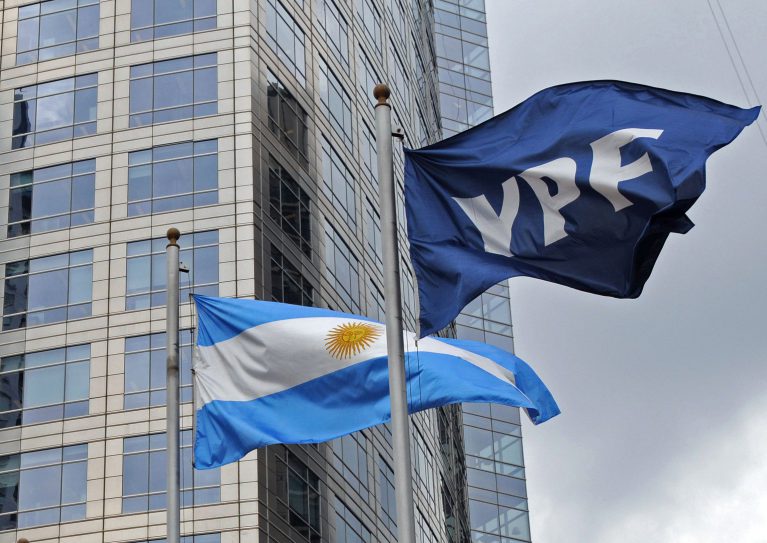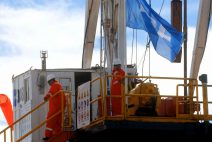A U.S. judge temporarily halted the enforcement of an order requiring Argentina to hand over its 51% stake in oil and gas company YPF to satisfy a $16.1 billion court judgment partially.
The decision by Manhattan-based federal judge Loretta Preska provides temporary relief for the South American country, which has warned that its economy could be destabilized if forced to give up its stake in YPF.
A hearing had been scheduled for Monday, but Preska extended the deadline to July 17 to allow time for an appeal.
Argentine government sources contacted by Reuters were not available for comment.
Argentine President Javier Milei has been working to strengthen foreign currency reserves and curb rising inflation while grappling with the country’s heavy public debt burden.
Following the temporary suspension, YPF shares in Buenos Aires reversed earlier losses and rose 0.63% as of 1650 GMT, while the benchmark Merval index turned positive and gained 0.9%.
The litigation stems from Argentina’s 2012 decision to take over Spanish firm Repsol’s stake in YPF without making a tender offer to minority shareholders Petersen Energía Inversora and Eton Park Capital Management.
These shareholders are represented by litigation fund Burford Capital, which has said it expects to receive 35% and 73% of the respective awards to Petersen and Eton Park.
In September 2023, Preska ordered Argentina to pay $14.39 billion to Petersen and $1.71 billion to Eton Park.
Argentina has not paid the judgment while it appeals. On June 30, Preska ordered the government to turn over the YPF stake within 14 days.
Argentina has argued that YPF shares are immune from seizure under the U.S. Foreign Sovereign Immunities Act, while Burford argued that a commercial activity exception and years of evasion by Argentina justify enforcement.
In a motion filed Thursday to delay the turnover, Argentina told the appeals court that “nothing could be more at stake.”
It warned that requiring a transfer of ownership would irreparably harm its sovereignty, interfere with foreign relations, violate international law, and improperly expand the power of U.S. courts.
Argentina compared the transfer of ownership to a foreign court ordering the U.S. government to ship out the gold reserves stored at Fort Knox based on a misinterpretation of U.S. law.
The country also said it would be unfair to relinquish control of the country’s largest energy company now, as doing so would likely be irreversible—even if it ultimately prevails in the case.






















